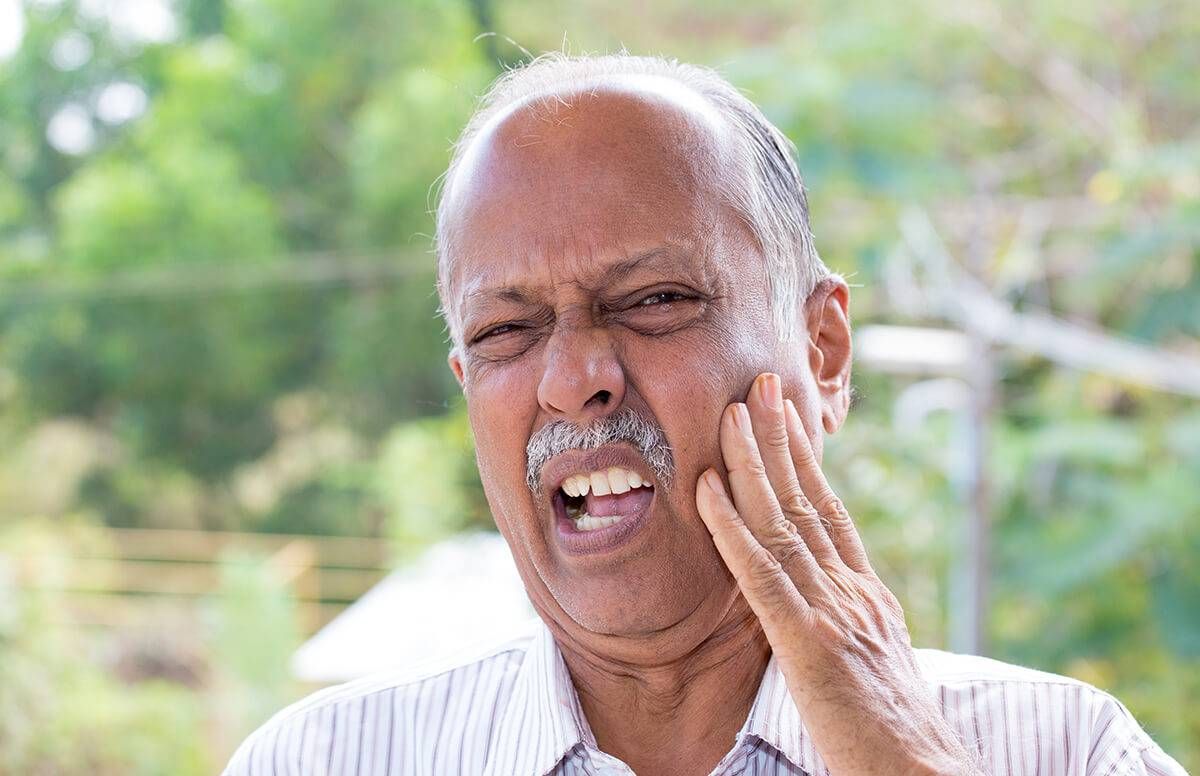Why Many Older Adults Go Without Dental Care
Medicare covers very few services, but regular checkups are essential
When is the last time you saw a dentist?

The American Dental Association (ADA) recommends that all adults over 60 get an annual dental exam, even if they don’t have tooth pain or other obvious problems.
Since nerves shrink and become less sensitive with age, it may be too late to save a tooth by the time discomfort begins. It’s also possible to have problems typically associated with youth, such as a painful wisdom tooth.
Preventative treatment is certainly more affordable than waiting for a costly root canal or surgery. Some dental problems can even cause other health issues to become worse. Poor dental habits can lead to the tooth and gum disease linked to heart disease, pneumonia, arterial blockage and stroke.
Still, many older adults avoid visiting their dentist due to cost. In 2010, one in five Medicare recipients had not seen a dentist in the last five years, according to the Kaiser Family Foundation.
The Limits of Medicare for Dental Care
Unfortunately, the most commonly needed dental treatments are not covered by Medicare.
“These include cleanings, X-rays, plates and the things we see our dentist for during a regular exam,” said Jonathan Burlison, outreach director at Nebraska SHIIP (Senior Health Insurance Information Program). Some exceptions exist; Medicare Part A might pay for some or all of an emergency hospital visit where a complicated dental procedure would be needed, he said.
Most patients, however, won’t need the very specific procedures that are covered, such as exams done in preparation for a heart valve replacement or cleanings prior to oral cancer radiation, according to the Centers for Medicare & Medicaid Services.
In the case of an accident or injury that forces a patient to receive dental work in the hospital, it’s possible to get some help from Medicare for just the immediate care done while in the ER or as an in-patient. Follow-up care after you leave the hospital, however, is not usually Medicare-eligible.
How Do Older Dental Patients Pay?
Given that you really can’t rely on Medicare to foot the bill, how are most patients over 65 handling dental expenses?
A 2016 Medicare beneficiary survey revealed that 75 percent of dental costs are paid out of pocket by patients, leaving many people on a fixed income to cover the average cost of $929 per year without help. Employer-based plans paid 12 percent of costs, and Medicare Advantage paid 4 percent. Medicaid paid less than 1 percent of patient costs.
Lisa Skinner, insurance specialist at Brokerage Services, in Omaha, recommends that older patients look into reasonably priced individual dental plans, either as a rider to their existing private health plan policy or a stand-alone plan.
“Medicare patients can also look at a Medicare Advantage plan that offers gap coverage for things that Medicare doesn’t cover, like dental services,” she said. “Many offer no pre-existing limitations if you enroll 90 days before or after your 65 birthday.”
Skinner also suggests that those looking to get help paying for dental procedures start researching their options well in advance of Medicare open enrollment so they are prepared when it’s time to choose plans.
“While no dental plan usually covers everything, even the most reasonably priced options will help with the cost of one to two cleanings per year and a discount off of major dental work, such as a root canal or crown,” Skinner said.
These coverages are similar to what younger patients buy when they get private dental plans through their work or as an add-on rider to their private policy.
Consequences of No Dental Care
With the cost of dental care rising as we age, it’s not surprising that many Medicare patients just skip the annual cleaning. Half of Medicare survey respondents admitted that a strained budget is the reason for their failure to regularly see a dental professional.
This may be the reason behind a 2013 Kaiser Family Foundation report that states one in four Medicare beneficiaries had edentulism — meaning they were completely lacking natural teeth. It also underscores the importance of educating older Americans on the role that Medicare plays — or rather, does not play — in maintaining healthy teeth and gums, and why alternatives must be sought before costly ailments occur.
Dr. Jason Cabler, a Fairview, Tenn. dentist, recommends that even patients with supplemental insurance check to make sure they know exactly what is covered so they're not surprised when they arrive at the dental office needing treatment. It may be possible for patients with no coverage to work out a payment plan or other financing arrangement with the provider in advance of treatment.
Perhaps the best way to cut dental costs, however, is with a thorough oral care routine.
“To keep their teeth healthy, we recommend keeping up a good hygiene regimen at home, as well as coming in for a professional cleaning and exam at least every six months — or more often if you’re prone to dental problems,” Cabler said. “We recommend those guidelines whether they have insurance or not.”

